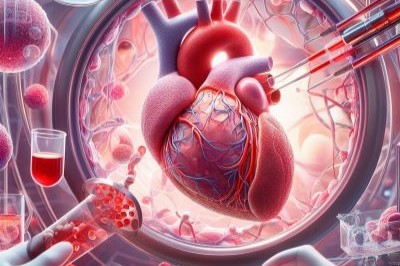Conference Themes
The Regenerative Medicine and Stem Cell Conference 2026 (RSC-2026) will bring together field experts, scientists, clinicians and researchers to deliberate on the continuum from discovery to translation with a particular focus on the opportunities and challenges faced by low- and middle-income countries, especially Pakistan.
The scientific program spans across the following five thematic areas:

Stem Cells: From Bench to Bedside
This theme captures the complete journey of stem cell science, from fundamental research to translational applications. It will highlight advances in stem cell biology and disease modeling, including the use of iPSCs, organoids and engineered immune cells to study and treat diseases. Discussions will explore the potential of laboratory innovations and how can they be translated into regenerative and cell-based therapies relevant to the health care settings in LMICs. Ethical, regulatory, and safety dimensions will be addressed to ensure responsible and sustainable innovation in the field.
Regenerative Medicine and Tissue Engineering
This theme focuses on how advances in biology, tissue engineering and material sciences are paving new pathways to restore or enhance tissue function. It will cover recent progress in biomaterials, scaffold design, 3D bioprinting and organoid development, highlighting how these innovations are bringing regenerative solutions closer to clinical applications. The sessions will bridge fundamental discoveries with translational potential, emphasising on regenerative strategies that could transform patient care across multiple disciplines.


Cancer Biology & Precision Oncology
This theme will explore the biological and molecular underpinnings of cancer development, evolution and therapeutic response. Discussions will focus on cancer stem cells, tumor heterogeneity and the interaction of tumor microenvironment in disease progression and treatment response. Advances in genomics and molecular profiling are redefining cancer classification and guiding towards precision oncology strategies. The sessions will highlight translational research and personalised approaches that aim to improve treatment outcomes and patient survival.
Nanomedicine, Extracellular Vesicles & Advanced Drug Delivery
This theme highlights how nanoscale innovations are shaping the future of targeted and personalized therapies. It will explore advances in nanotechnology and extracellular vessicles (EVs) for targeted and efficient drug delivery while minimizing toxicity. Emphasis will be placed on the translational potential safety and scalability of these emerging platforms with attention to how these technologies can be adapted to propose practical medical solutions.

Genetics/Genomics & Gene Therapy
This theme explores how advances in genetics and genomics are transforming our understanding and modern medicine. It will cover emerging technologies such as whole-genome sequencing, CRISPR-Cas9 gene editing, and gene therapy. Discussions will focus on how these discoveries are enabling early diagnosis, personalized treatment, and precision treatment. The theme bridges discovery science with therapeutic innovation.

